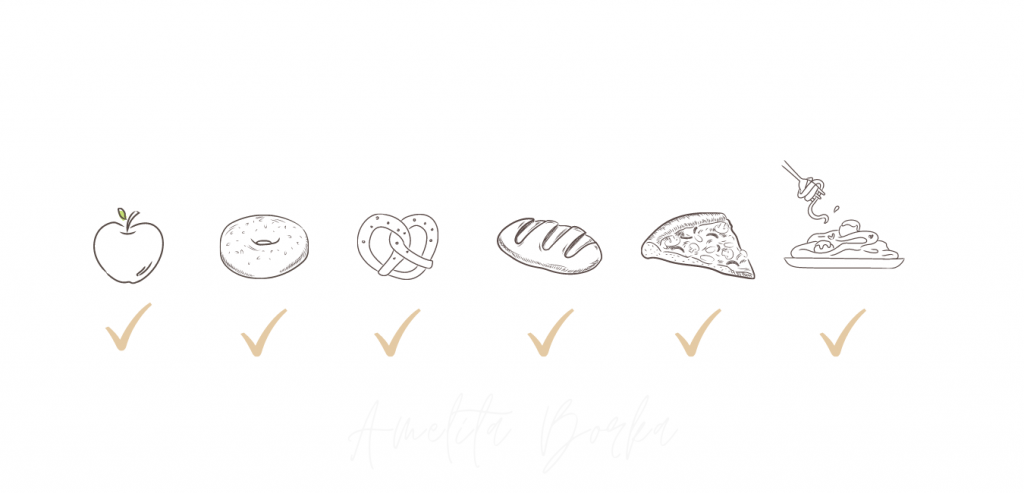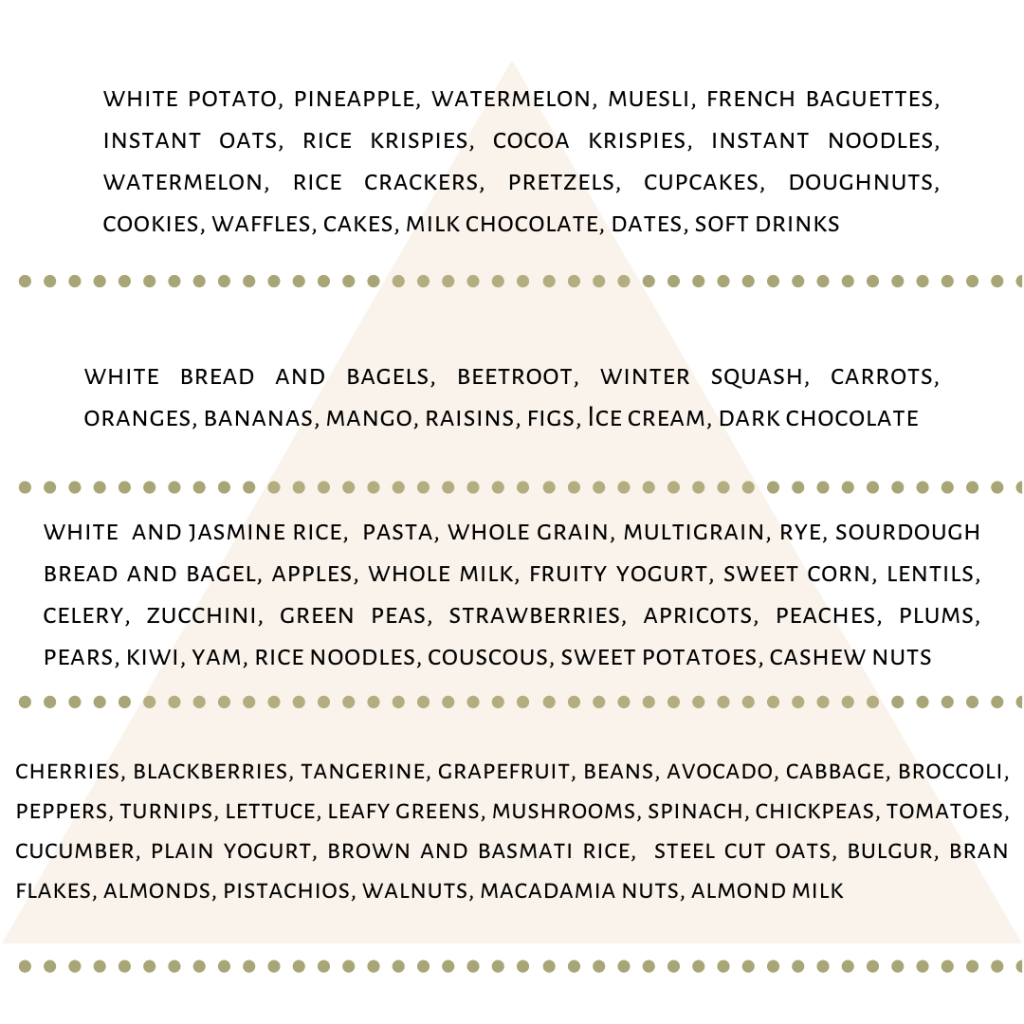Carb talk
Good carbs, bad carbs. Where did this come from?! Carbohydrates are the body’s primary energy source, and are a crucial part of a well-balanced diet. 1g carb gives you around 4.1kcal to be specific. So in this aspect, a carb is a carb, although there are simple carbs, and complex carbs or, as many people call them, the bad and the good carbohydrates, but in reality they only differ in how our body uses them, and we do need them both.

All carbohydrates are made up of three components: fiber, starch, sugar. Fiber and starch are the complex carbs, and sugar is the simple carb, so depending on how much of each of these components is found in a food/product determines its nutrient quality (meaning if it is good for you or not that good for you, right?!).
Complex carbs digest slower, and tend to keep us feel full for longer than simple carbs, as they are made up of longer chains of sugar molecules, so it takes more time for the body to break down and use as energy. Generally, complex carbs pack in more nutrients, and are rich in fiber, which is a good thing, but consuming too much of it can also cause digestion problems, such as bloating. The best complex carb sources are: brown rice, sweet potatoes, whole wheat bread and pasta, cereals, vegetables, some fruit, etc..
Simple carbs are sugars. They digest and utilized by our bodies very quickly and easily (short chains of sugar molecules). Unlike complex carb sources, they will not keep you full for as long, and they typically have no fiber and not that rich in nutrients. The most common simple carb sources are: white flour made bakery products and pasta, sugar and sugary products, honey, breakfast cereals, diary products, soft drinks, some fruit, etc.. Simple carbohydrates are not necessarily bad for you though, when you are consuming them from sources, that naturally contain simple carbs, therefore sugars, such as fruit and vegetables, as they are also packed with vitamins and minerals. Fruit and vegetables also have fibers in them, apart from the naturally occurring sugars, that makes their digestion slower, so basically they fall into an in- between category. The problem starts with cookies and cakes with added refined sugars. This is the one, you should stay away from in a daily basis- you can still enjoy simple carbohydrates on occasion, but you don’t want them to be your primary sources of carbohydrates.
Although, simple carbs are clearly not that beneficial, we do need them when we need an energy boost, like before or/and after a hard workout. We need around 25-30 grams of fibre a day, to maintain a balanced diet, so for that, you have to stick to complex carbs, as your main carb source. Instead of trying to decide what is a bad carb, and avoiding them at all cost, we have to find a healthy balance between them.
Glycemic Index can be helpful to choose your carbs cleverly. Every carb source has a GI value, that basically tells you how quickly and how high your blood sugar will rise after eating it, compared with sugar. High GI foods are typically quickly digested and cause a rapid rise in blood sugar, while lower GI foods get digested more slowly, without quickly increasing your blood sugar. Glycemic Index still does not determine if a food is unhealthy or healthy, or if it’s good or bad for you, however it can help you understand how a specific food will be used by your body. There are low GI ( 55 or less), medium GI (56 to 69) and high GI (70 or higher) foods, and you want to base your diet on low GI foods.
Here is a Glycemic Index pyramid, that can give you an idea on how to choose your carbs:

So, no carbs are bad for you, right? We love carbs, we need carbs, so keep eating them carbs! Just be sensible about your choices. Say no to low-nutrient snacks and sweets, instead focus on whole grains, fruits, and veggies to get the energy your body needs every day. -Lita

One Comment
A generation that’s dying to eat "healthy" - amelitaborka.com
[…] body is incredible. It can adjust to certain conditions in order to stay alive. But eating low carb, low fat, high protein or even eating every 2 hours will not deliver the expected results, like a […]